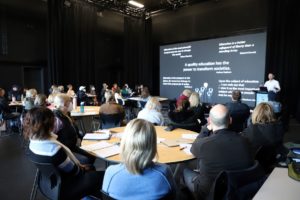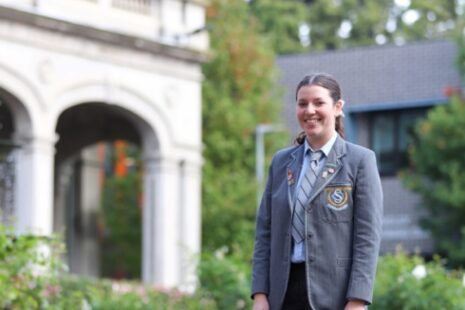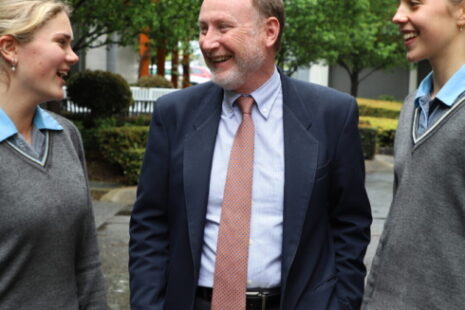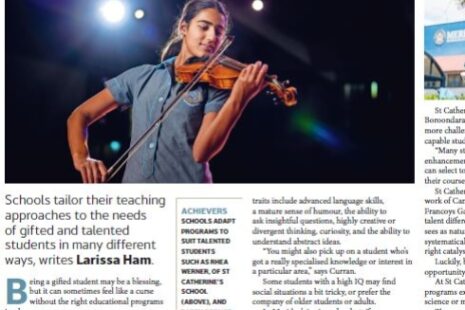It’s the Vibe
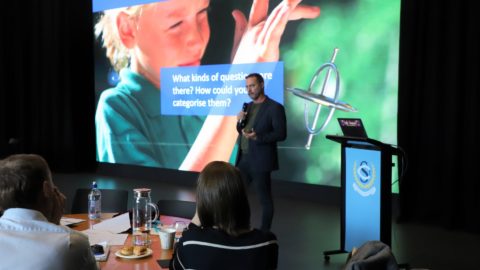
St Catherine’s School’s, Professional Learning Days provide ongoing opportunities for our whole-of-School staff to engage in collaboration and discussion whilst also learning from experts.
As a staff, we commenced Term 3 sharing inspiring practice presentations with each other. Our mid-term session, held on Monday of this week, offered us another opportunity to both reflect and plan for the next stage of the year.
This year, in line with our Towards 2025 Strategic Intent One: Academic Achievement, our theme for the day was ‘Cultivating the Thinking Classroom.’ This focus involved developing strategies which enable us as teachers to create the most optimal conditions for student thinking and learning competencies (such as metacognition and collaboration) to flourish.
Monday’s Professional Learning Day began with a Keynote Address delivered to all staff by Dr Tim O’Leary, an educator whose doctoral research was completed under the supervision of leading education expert, Professor John Hattie, and who now leads Educational Data Talks.
Tim’s theme focused on ‘Classroom Vibe,’ discussing the idea that cultivating a strong classroom culture (or ‘vibe’) is the key to impactful practice. Tim narrowed ‘vibe’ down to the key element of teacher clarity and credibility. He made fruitful links between his ideas and the work we have already undertaken as a whole staff within our new Teaching and Learning Framework.
The positive feedback to Tim’s address from all sectors of our School is testament to the willingness of our staff to maintain a curious disposition and be reflective in their practice.
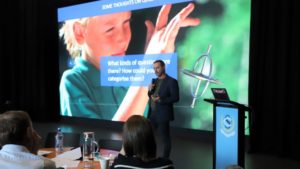
Dr Peter Ellerton, from the University of Queensland discussed ‘The Importance of Teacher Intent in Questioning’
Following Tim’s Keynote, Dr Peter Ellerton delivered his Address and workshop on ‘The Importance of Teacher Intent in Questioning’ to our Senior School staff. This continued Peter’s three-year association with St Catherine’s as part of our partnership with the University of Queensland’s Critical Thinking Project.
Through differentiating question types based on teacher intent (rather than question structure, as is commonly the case) Dr Ellerton provided us with a powerful means of reflecting on our questioning strategies in both classroom discussion and in assessment. The primary goal of this practice is to create increased opportunities for cognitive rigour with our students.
The richness and ideas sparked by our two speakers were then taken into the afternoon collaborative sessions. Teachers worked in teams to plan their pedagogical approach and curriculum for upcoming units of work.
With significant changes to a number of VCE study designs, as well as a new Australian Curriculum, collaborative time such as this is integral. It ensures the relevancy and accuracy of our curriculum approaches and makes sure our students are participating in the necessary thinking activities that will result in academic success.
I look forward to sharing further successes as the year continues.


